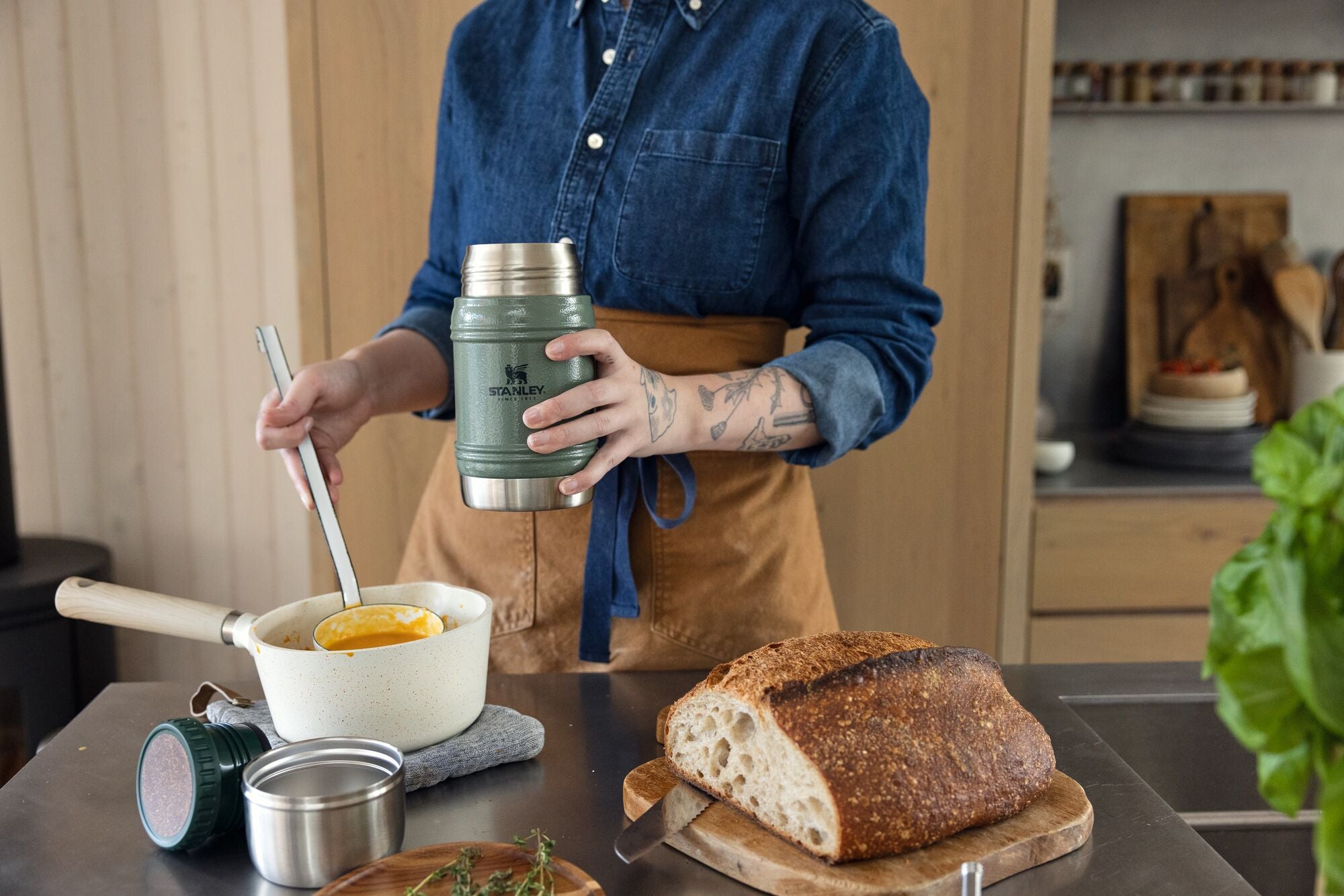Written By: Karla Tafra
Good and restful sleep has repeatedly been shown to have a powerful and positive effect on the overall health and wellness of the human population, and we can thank the research teams all over the world whose only mission is to hack sleep and find the best ways to improve its quality. In addition to good night routines and focusing on getting to bed at a reasonable time, nutrition can play a huge role in helping your body get the rest it needs. Here are some of the best sleep-promoting foods to help you sleep.
The Link Between Sleep and Nutrition
Diet is an integral part of our lives, and what we choose to put inside our bodies can have a drastic impact on the health and function of every part of our body. It’s one of the keys to our systemic health, and it can be just as helpful as it can be harmful.
We all know that excess sugar and highly processed foods aren’t good for us, and we also know that seasonal and organic produce can help our bodies build muscle, repair tissue, strengthen our immune system, and even heal from certain disorders. But mostly, proper nutrition that’s rich in macro and micronutrients helps us maintain all of our body systems in check, lowering the risk of inflammation, increasing our energy levels, stimulating our focus, improving productivity, and supporting our defense system. And none of that happens if we’re sleep deprived.
Sleep deprivation and sleep deficiency are two terms that both define not getting enough sleep. Whatever the reasons behind it, when you’re not sleeping as much or as well as you should, your body isn’t able to recover, recharge, and repair, leaving you functioning at not-the-most-optimal capacity. This leaves space for a weakened immune system and infections, high-stress levels, and a higher risk of burnout. This can not only be dangerous for your overall health but also interfere with your daily life as you’re less energetic, more fatigued, and have a harder time reacting, acting, and simply functioning.
As food can have a strong impact on all of the areas of your health, research has found that certain foods can help you sleep better, longer, and with fewer restless moments. From fatty fish and nuts to kiwi and turkey, here’s what you should consider including into your diet if you’re struggling with sleep deficiency.
10 Foods to Help You Sleep Better
Fatty Fish
Studies show how omega-3-rich fatty fish may help promote sleep quality as well as help you fall asleep faster. One of the two important fatty acids, DHA stimulates melatonin, the sleep-inducing hormone melatonin, and helps your body work with the natural circadian rhythm. Additionally, fatty fish is a rich source of vitamin D, which is also known to have a positive role in quality of sleep.
Milk
Have you ever heard of babies getting “milk drunk?” The term is there for a reason, as milk is a source of tryptophan, an amino acid that gets converted into a molecule (5-HTP) that helps stimulate the production of melatonin. This amino acid and the 5-HTP molecule is crucial in optimal sleep cycles, helping you maintain healthy and balanced hormone levels.
And when it comes to milk, it seems like it’s not just tryptophan that helps improve your sleep, but the overall combination of all amino acids found in this popular dairy beverage. Just make sure you’re getting high-quality sourced whole milk as most processed and fortified products on the market have very little nutrients in them to begin with.
Kiwi Fruit
This vibrating green fruit is not only delicious but also rich in a variety of nutrients to support your health and sleep quality. Their high content of antioxidants, especially vitamin E, seems to be the reason behind their positive effect on sleep, especially as this vitamin is known to reduce stress levels, and inflammation, as well as have an overall calming effect on the body.
Nuts
Nuts are known for their high-quality healthy fat content and they’re especially praised amongst those who are following a paleo, keto, or even vegan diet. Walnuts, almonds, cashews, and pistachios, just to name a few, are all members of this food group and they all are a source of melatonin which helps stimulate your body’s transition into rest-and-digest mode. They are also rich in magnesium and zinc, both of which are known to promote restful sleep and relieve the negative effects of insomnia.
Turkey
Another sleep-inducing food that contains the infamous tryptophan is turkey, and that’s why plenty of people easily digest turkey salami or grilled turkey breast for dinner. In addition to being a precursor to melatonin, tryptophan also stimulates the release of serotonin, the so-called happiness neurotransmitter. Science shows its positive effect on fruit flies, who are usually one of the most studied animals in the labs as many of their body responses are quite similar if not equivalent to humans.
Their sleep patterns are very similar to slow-wave or non-REM sleep, and since one of the known functions of serotonin is promoting slow-wave sleep in nonhuman mammals, it just as well might do the same for humans.
Tart Cherries (and juice)
Also called sour cherries, this tart, but still sweet cherry sibling has been vastly studied for its benefits on sleep and sleep quality. This is mostly due to the above-average concentrations of melatonin as well as a variety of different antioxidants that help not only promote restful sleep and increase sleep efficacy, but also lower stress levels and help the body transition into rest mode.
White rice
Even though grains and carbohydrates in general, have a bit of controversy behind their role in our overall diet and nutrition, when it comes to white rice and sleep, research points out its benefits. A study conducted in Japan showed how those who regularly consumed white rice instead of noodles or bread had better quality sleep and fewer wakeful moments. It also confirms the studies that showcase how having higher glycemic-index foods for dinner can improve sleep quality. Now, that being said, it’s important to note that not all high-GI foods will have that effect, especially if they’re high in sugar.
Bananas
Bananas are high in a variety of nutrients, and especially in magnesium, tryptophan, and fiber, all of which are known to promote better sleep. Magnesium helps your body tap into its circadian rhythm and increase the production of melatonin , tryptophan stimulates the release of melatonin and serotonin, and high levels of fiber promote feelings of fullness that help curb cravings and avoid hunger-related sleep issues.
YOgurt
Another dairy product that can help you fall asleep faster and have more restful sleep is yogurt. This creamy and delicious goodness is also loaded with the amino acid tryptophan which helps release melatonin and serotonin. Additionally, yogurt is an excellent source of protein and usually low in carbs or fats so it falls easier on your stomach, preventing any potential food-related issues before or during sleep.
eggs
And last, but not least, eggs are one of the best foods to help you sleep better as they are an excellent, a natural source of the holy trinity: tryptophan, melatonin, and vitamin D. All of these three nutrients are directly linked to better sleep so it’s no wonder that eggs are highly praised to help those dealing with insomnia or other sleep deficiencies.
Final Thoughts
Diet and nutrition are important factors in our everyday lives and by knowing exactly what to include on your plate at any given moment, you are able to fine tune those areas that need a bit of help. These 10 sleep-enhancing foods are known to stimulate the production of exactly those hormones your body needs to release in order to transition into sleep mode. Try adding them into your diet if you’re having trouble sleeping and notice the difference.
ABOUT KARLA TAFRA
Karla Tafra, a Croatian content creator, yoga teacher, nutritionist, writer, and brand consultant, has been residing in the US for 7+ years. She has collaborated with various brands such as Nike, Gymshark, Adidas, Lululemon, Gaiam, Bodybuilding.com, Sakara Life, and W Hotels worldwide. Additionally, she served as the official off-season yoga teacher for the Seahawks and conducted health and wellness seminars in Facebook, Google, and Pinterest. Despite having a master's degree in law, her true passion lies in working with health and wellness brands that strive to enhance people's lives. She lives with her toddler in Bellevue, WA.
Back to HOW-TO GUIDES



















